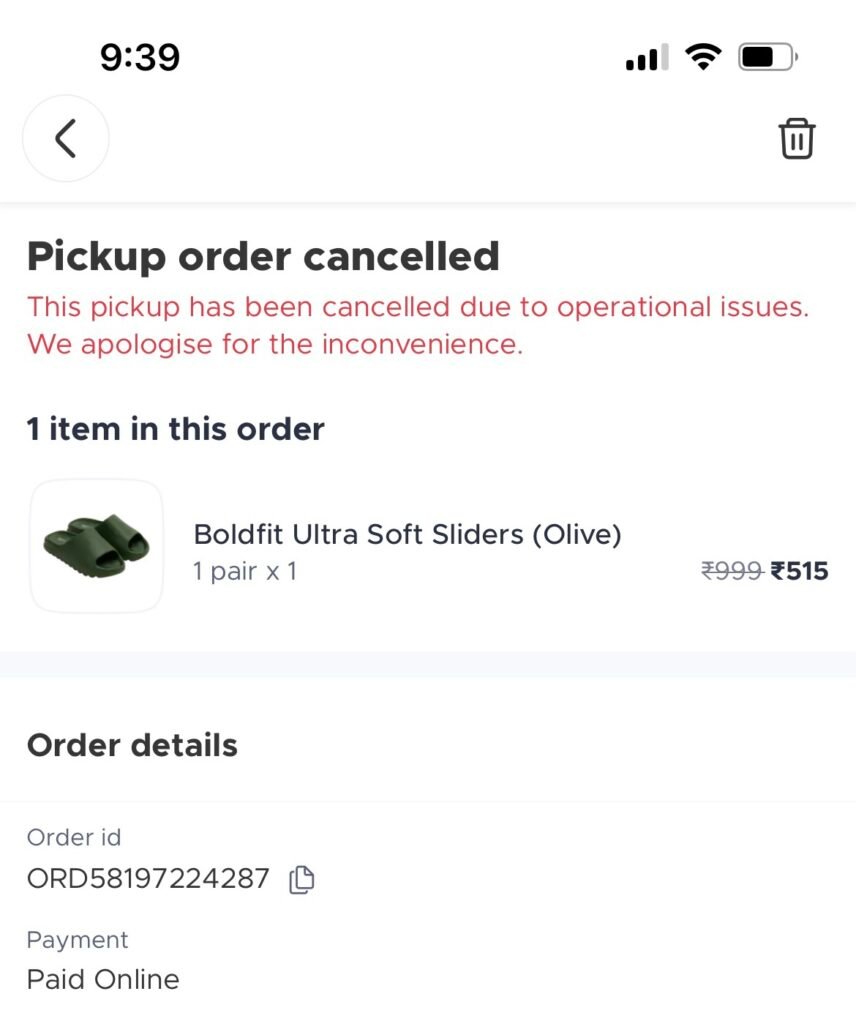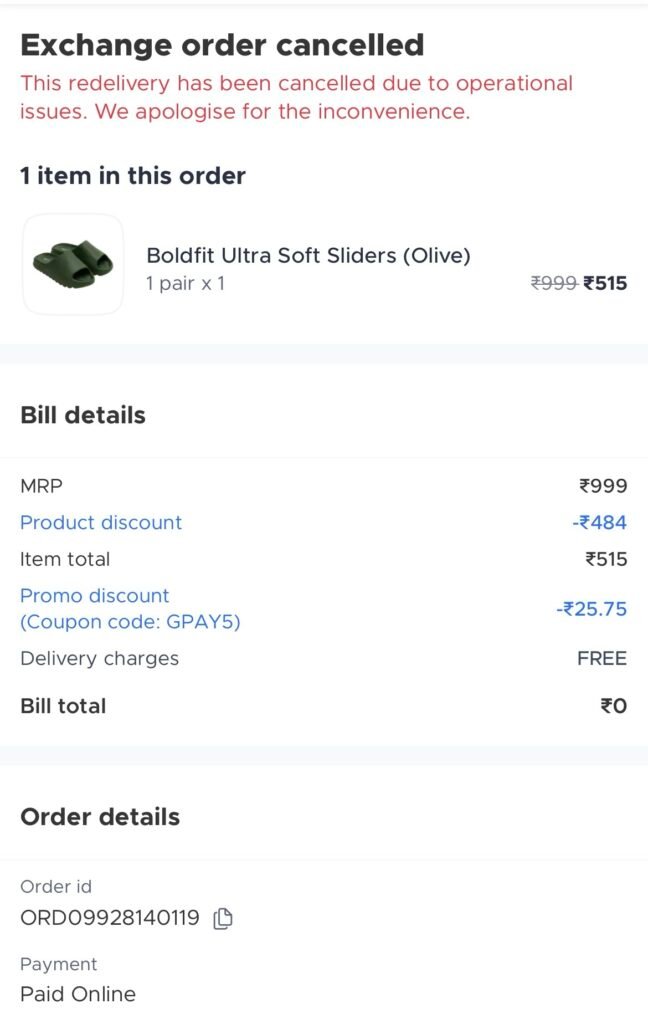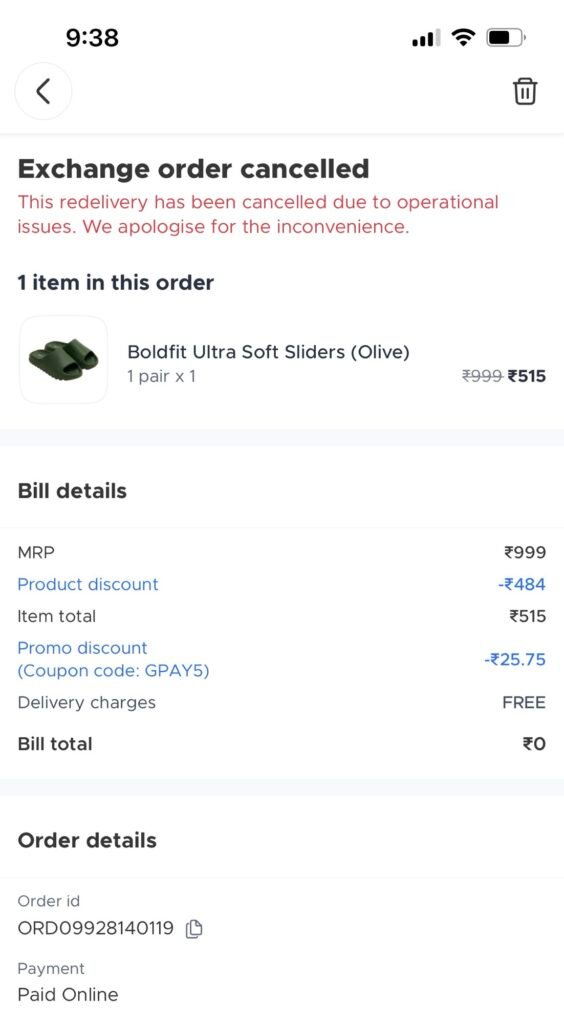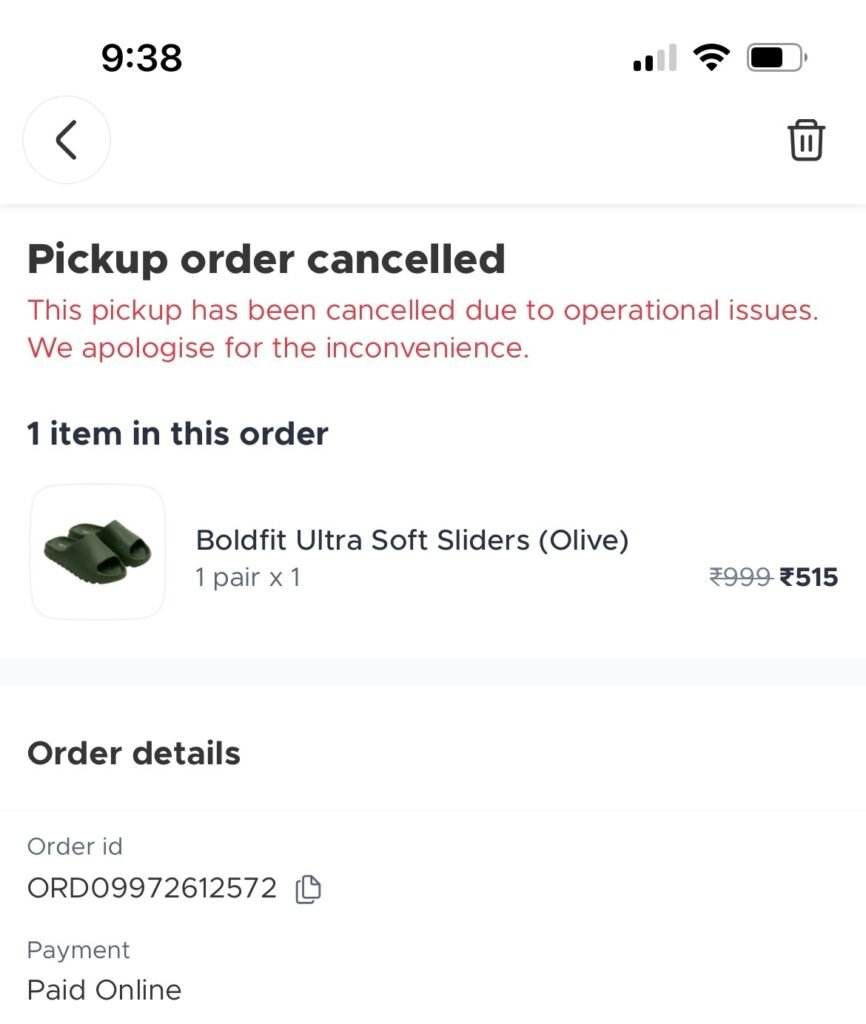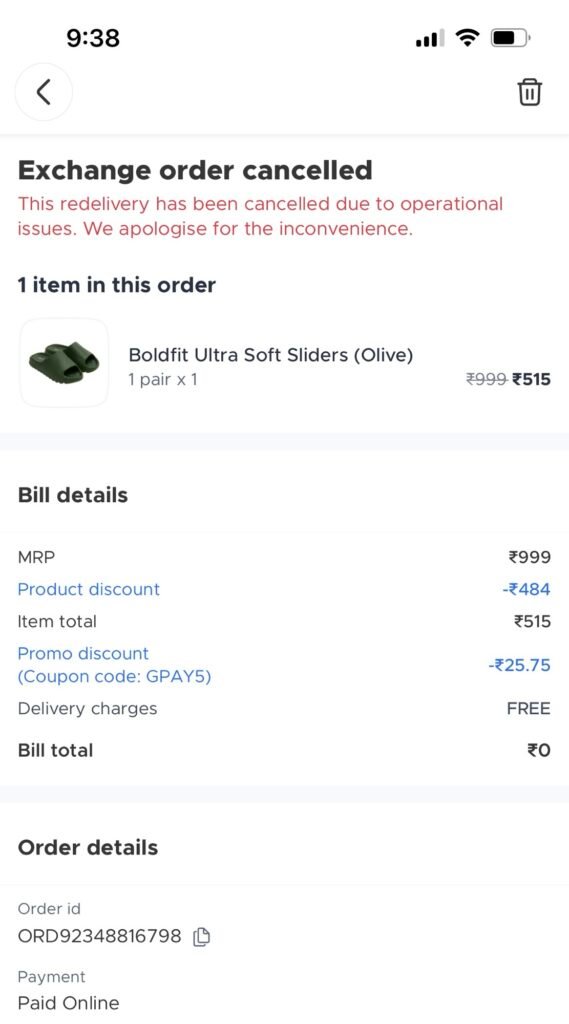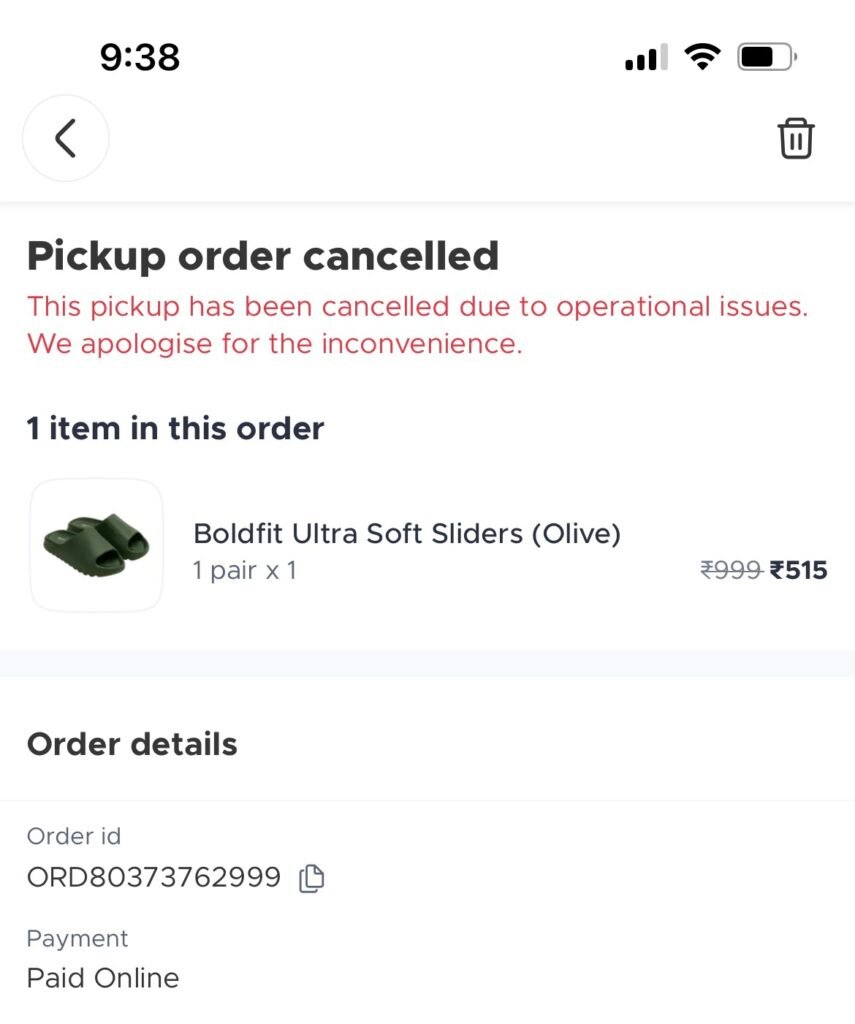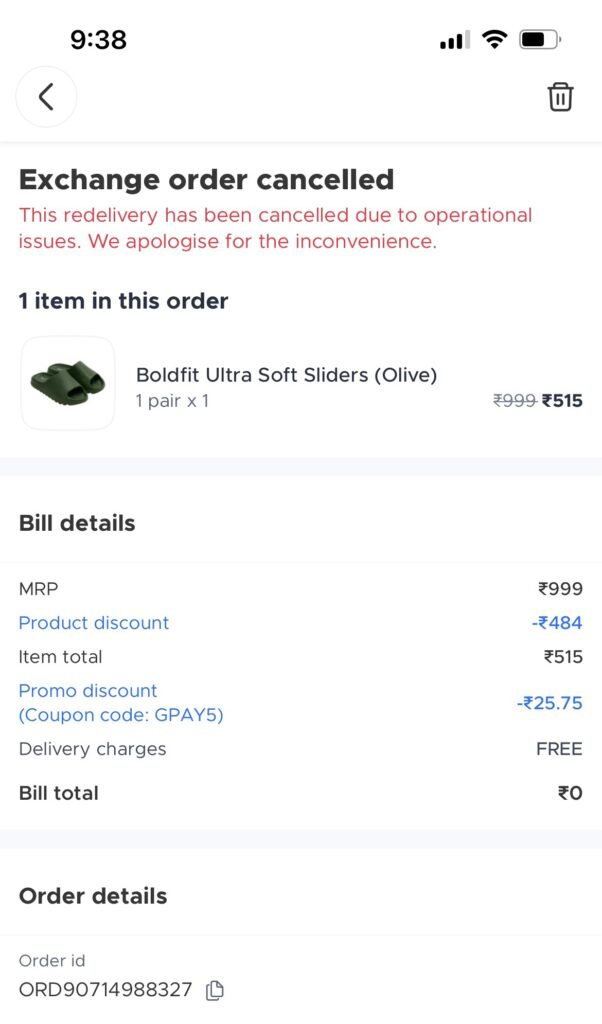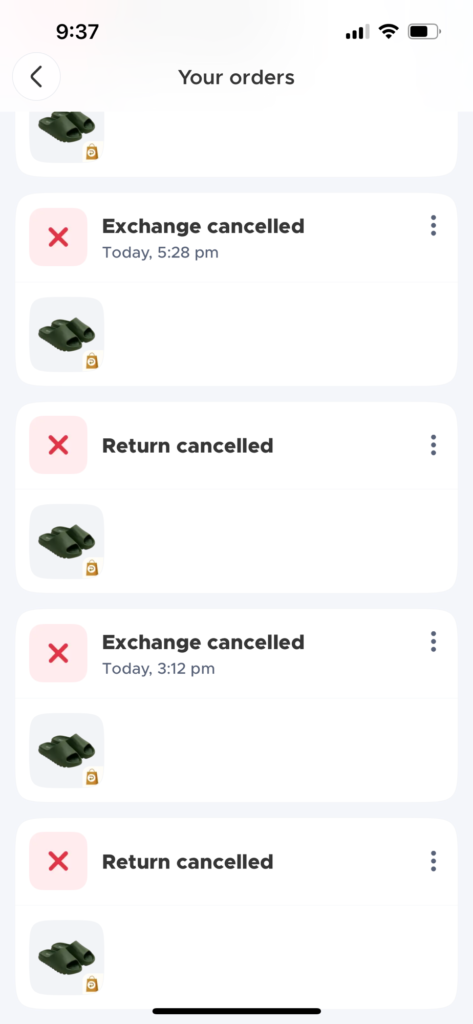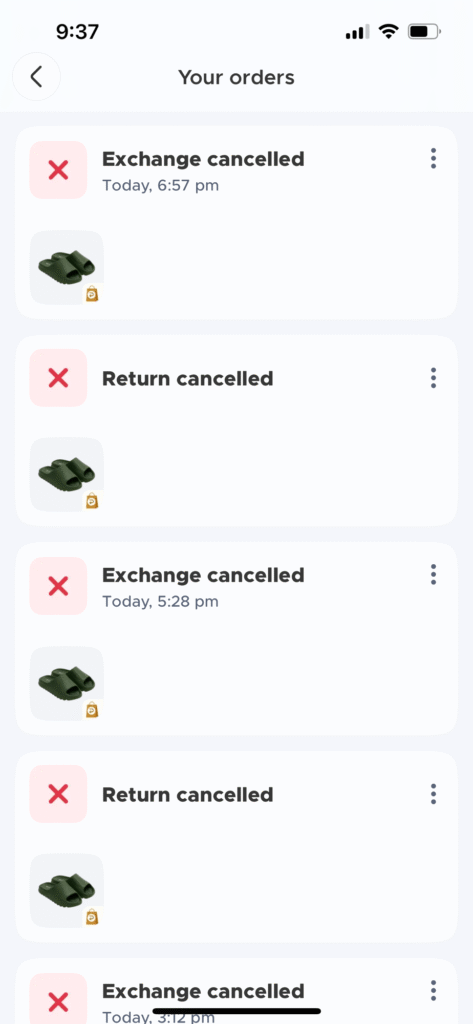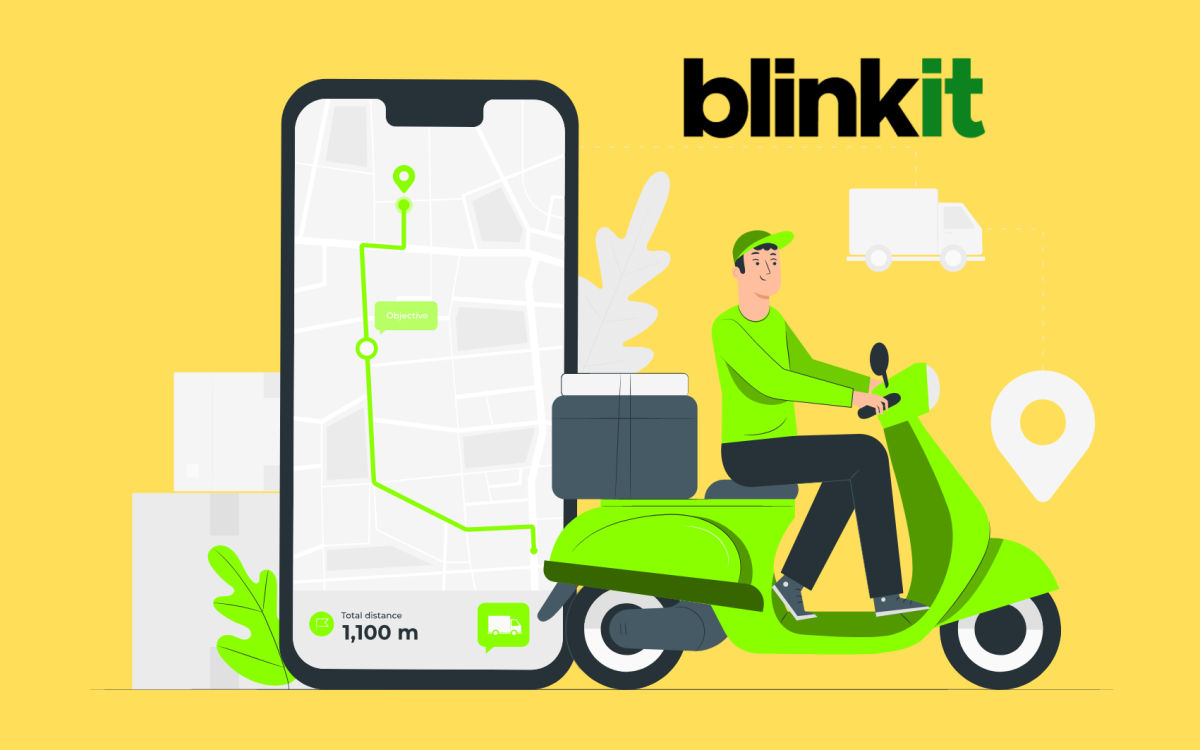For years, Blinkit has symbolized urban convenience — a proud extension of India’s fast-growing digital economy. Powered by Zomato, the parent company led by Deepinder Goyal, Blinkit positioned itself as the heart of hyperlocal delivery. The brand spoke of agility, innovation, and world-class logistics. Yet these words today feel painfully disconnected from the lived experiences of long-term users.
This is not just a story of one failed pickup. It’s a reflection of how false speed can destroy genuine trust.
A loyal customer of Blinkit — someone who has supported the platform for over four years — placed a routine order. But when the wrong product arrived, things took a tragic corporate turn. A simple return request became a window into deeper systemic negligence. Blinkit’s system continued showing that the pickup was “processed” and “arriving in 15 minutes.” That timer became the face of disappointment. Hours passed. Days passed. And each update brought only more deception.
Where is the leadership responsibility here?
When Blinkit’s app shows pickup “confirmed” yet the pickup never happens, is this not a case of data misconduct and operational dishonesty?
One must ask — does Deepinder Goyal, the visionary behind Zomato, know that Blinkit under his umbrella is misleading its customers with false progress reports? The very platform that represents modern India’s speed and trust is now seen as a factory of digital falsehood.
Blinkit claims to run on efficiency, but customers are left watching automated lies. Return requests are raised multiple times, closed without reason, and reopened as if the system is mocking the customer’s patience. For a brand that promises real-time delivery data, the absence of real accountability is startling.
In a country where quick-commerce defines the next phase of retail innovation, how can one of India’s leading business groups under Zomato ignore these gaps?
What happened to customer empathy? What happened to integrity?
If Blinkit’s leadership can allocate millions to marketing and instant delivery, why can’t it allocate time and attention to fix the pickup mechanism? Are shareholders and team members unaware that these false “15-minute promises” can erode brand credibility overnight?
The consumer who endured this has not only lost time and faith but also a sense of belief in digital progress. A platform built on “speed” has become painfully slow when it matters most. This is a classic example of corporate blindness — seeing data but missing humanity.
Blinkit and Zomato stand today as cornerstones of India’s digital business expansion. Yet somewhere between dashboards and algorithms, they have forgotten the emotional foundation of commerce — trust.
The question is not about one delayed pickup. It’s about culture.
• Does Zomato’s board see Blinkit’s fake pickup updates as acceptable corporate behavior?
• Why does Blinkit’s automated system continue sending false alerts under Zomato’s watch?
• When leadership celebrates “growth,” are they measuring humanity too?
True success is not defined by delivery speed — it’s defined by how honestly a company handles mistakes.
Blinkit has achieved scale, visibility, and technological sophistication. But in this moment, it has failed the very principle of business dignity. It has failed the Indian consumer who believed in progress, transparency, and truth.
Dear Blinkit and Zomato — it’s time to pause your speed, look inward, and rebuild honor. No innovation can replace sincerity. No timer can measure trust. Fake updates may last fifteen minutes, but consumer disappointment lasts far longer.
